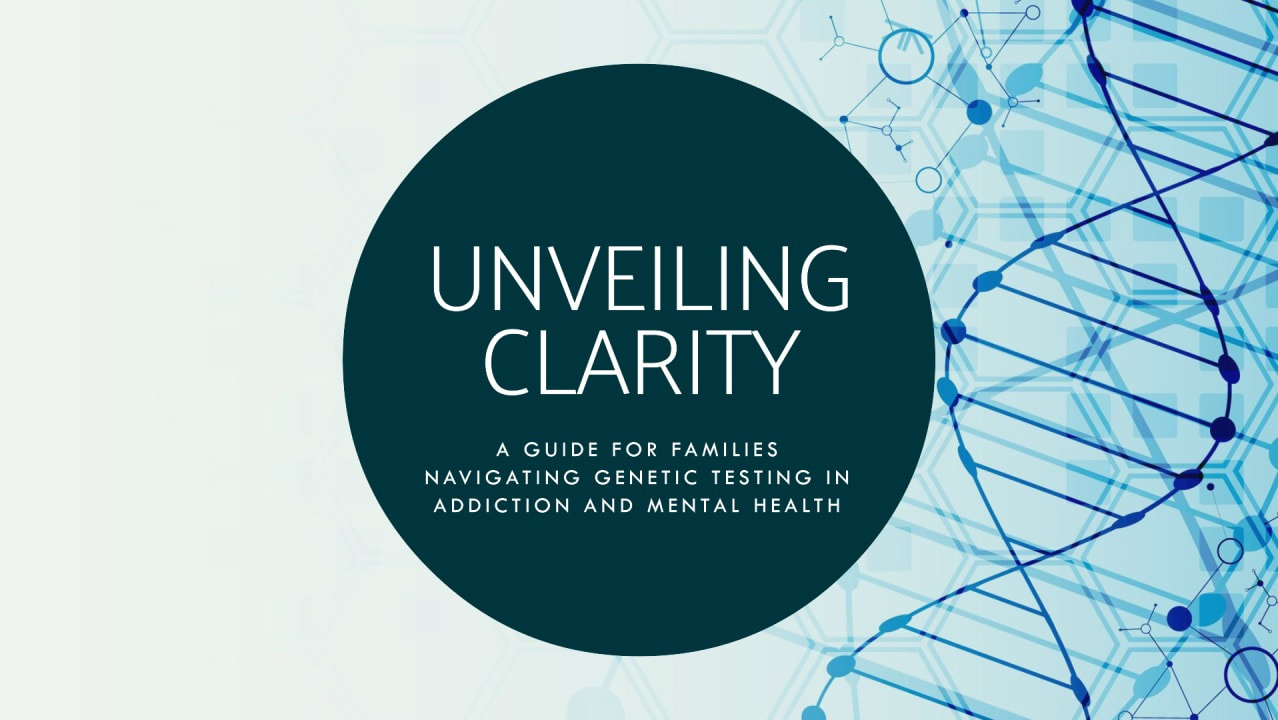Creating a Healthy Family Culture: 12 Essential Elements for Building a Nurturing Home Environment10/25/2023 A healthy and nurturing family culture is the foundation for raising thriving, confident children. While each family is unique, certain core elements foster love, growth, and understanding within a family unit. In this blog, we will explore the 12 most important ingredients for creating a positive family culture that supports all members.
1. Open Communication Open, honest communication is the cornerstone of a healthy family dynamic. Family members should feel comfortable expressing their thoughts, feelings, and opinions openly. This starts with active listening — being fully present and engaged when a family member is speaking. Active listening involves giving one’s full attention, avoiding distractions and judgement, and reflecting back what the speaker has said. Family members should be able to voice concerns, talk through problems, and share ideas without fear of negative reactions. Open communication requires vulnerability. Parents can model this by sharing their own challenges and being real about their struggles. This helps children open up and confide in parents as trust builds. Regular family meetings are a great way to maintain open communication. Set aside time for everyone to talk about what’s working well and what needs improvement. Brainstorm solutions together and allow each person to contribute. 2. Unconditional Support Knowing they have unwavering support provides family members with a sense of security. Each person should feel confident that their needs — emotional, mental, physical — will be met with care and compassion. Offer reassurance and encouragement as children take on new challenges. Avoid judgemental language; be understanding if mistakes happen. Help children develop a growth mindset by praising their efforts. Validate emotions too. Don’t criticize or dismiss feelings. Listen with empathy when a family member shares frustration, anger, or grief. Reflect their emotions back to them. Acts of service are also meaningful. Prepare a sibling’s favorite meal before an exam. Help manage chores when someone is overwhelmed. Show up for important events and milestones. 3. Respect for Individuality While healthy families bond tightly, respecting each member’s boundaries, opinions, and individuality is crucial. Avoid comparing or criticizing family members negatively. Give each person space to explore their unique interests and passions without judgement. Don’t force your own unfulfilled dreams onto them. Recognize each family member’s changing needs as they grow. Respect different communication styles too. Some may need time to process before discussing issues while others want to talk things through immediately. Accept these differences. Acknowledge each member’s personal growth and progress, however small. Praise them for working hard and doing their best, not just accomplishments. 4. Establishing Trust Trust is the glue that holds families together through thick and thin. It emerges through dependability, honesty, and following through on promises. Be consistent with discipline, house rules, and schedules. Avoid hollow threats or frequently breaking commitments. Admit mistakes and sincerely apologize when you let family members down. Trust your children by giving them increasing autonomy appropriate for their age. Let them make minor decisions independently. And share trust too. Confide worries and challenges you face. Ask children for input on family issues. Show you believe in their problem solving skills. 5. Shared Quality Time Families need to nurture their relationships, and quality time is the perfect nourishment. Make meaningful connections through shared activities, traditions, and conversations. Dedicate regular one-on-one time with each child. Get to know their likes, dreams, and struggles. Go for walks together, grab a snack at their favorite cafe, ask open-ended questions. Shared mealtimes also foster connections, so aim to eat together often. Turn off devices and engage in conversation. Cook together, share highlights from your day, or play quick bonding games. Outings build memories too. Explore new parks, museums and hiking trails. Try baking classes or volunteering as a family. Celebrate milestones big and small together. 6. Encouraging Personal Growth In healthy families, members support each other’s educational and self-improvement goals. Nurture children’s interests by providing resources and opportunities to learn. Foster a love of reading by visiting libraries often, reading aloud, and letting kids pick books that excite them. Watch educational shows together and discuss the content afterwards. Support their efforts and progress, even when they struggle. Remind them that mistakes help their brain grow. Praise hard work and perseverance. Learning together is also fun. Take a pottery workshop, plant a garden, study a new language. Inspire curiosity about the world. 7. Establishing Healthy Boundaries While connecting deeply, families still need personal boundaries to function optimally. Each member should have privacy, time for themselves, and respect for their belongings. Parents must set boundaries too. Make self-care a priority, whether it’s exercise, socializing, or relaxing. Model healthy boundaries with technology and work as well. Respect family members’ changing needs for autonomy as they mature. Loosen rules and supervision appropriately. But reevaluate if issues arise. Discuss and agree on shared family boundaries too — around safety, chores, money, internet use, etc. Consistency and transparency are key. 8. Shared Traditions and Rituals Traditions build a sense of identity, belonging, and purpose within families. Shared rituals and activities create cherished memories. Make birthdays meaningful with personalized breakfasts, outings, or gifts that reflect that person’s interests. Establish holiday traditions. Try weekly rituals like taco Tuesdays, family movie nights, or Sunday park visits. End each day reading together before bed. Even small acts create connection. Create a secret family handshake. Share highs and lows at dinnertime. Leave encouraging notes for each other. 9. Adaptability and Flexibility Life brings constant changes, big and small. Healthy families embrace flexibility and adapt to evolving needs. Reevaluate rules and responsibilities as kids grow up. Let go of control appropriately — allow tweens more autonomy, but step in if issues arise. Accept that interests will change as children develop their identity. Make space for new activities and priorities. Adjust expectations around schoolwork and chores if they become overwhelming. Figure out accommodations together. Model resilience and positive attitude when plans change. Treat challenges as opportunities for growth. Adaptability strengthens families. 10. Responsibility and Accountability Give children developmentally-appropriate responsibilities. Start small — picking up toys or feeding pets. Match chores to their skills and ages. Explain how their contributions help the whole family. Thank them for their efforts. Use natural consequences when they fall short. Don’t overload kids with adult responsibilities. Find balance and adjust as needed. Offer help when they’re frustrated. As they mature, involve kids in family decision making. Listen to their input respectfully. Collaborate on resolving disputes. Consistency and accountability foster personal growth. But have empathy for mistakes — the effort is what matters. 11. Positive Reinforcement All humans need encouragement and praise. Recognize children’s positive behaviors and model what you want to see more of. Compliment acts of kindness, generosity, patience or hard work. Avoid excessive criticism. Reinforce small progress. Use rewards and privileges judiciously. Focus on effort over results. Limit comparisons between siblings. Celebrate when children overcome challenges or persist despite setbacks. Praise good decision making. Highlight behaviors that align with your family values — honesty, service, eco-consciousness. Positive reinforcement lifts everyone up. 12. Healthy Conflict Resolution Disagreements are normal in families. Handled constructively, conflict can strengthen relationships and communication. Don’t dictate resolutions. Bring family members together to discuss disputes calmly. Listen without judgment. Find compromises. Teach kids to use “I feel…” statements to express their emotions. Reinforce respectful communication. Take a break if tensions escalate. Model apologizing sincerely after arguments. Be the first to forgive. Focus on repairing trust and hurt feelings. If issues persist, seek counseling. Mediators can teach healthy conflict resolution strategies. The goal is resolution, not punishment. Conclusion A healthy, supportive family culture provides stability as children navigate life’s challenges. While each family must find what works best for their unique needs, these 12 pillars create an environment where members can thrive together in mutual love, trust and respect. What are some other ingredients your family includes in creating a positive home life? Call to Action Take steps today to strengthen your family culture. Have an open discussion about what each person needs to feel loved, supported, and valued. Establish new traditions that promote trust and quality time. Be flexible and adapt as you encounter life's inevitable changes together. When challenges emerge, focus on compassionate communication and finding win-win solutions. With intention and effort, you can create a healthy haven for your family to thrive. If you want support and guidance, please get in touch.
0 Comments
When a loved one is struggling with addiction, it’s easy for families to slip into an “us vs. them” mentality. Lines get drawn, boundaries established, bottom lines created. But this divide often does more harm than good on the road to recovery.
Rather than exclusion, persons with addiction need inclusion. They need a community of support, not abandonment. As family members and loved ones, how can we move from division to unity? From “us vs. them” to simply “we”? The Danger of Labels Labels like “addict” are convenient shortcuts, but they also carry stigma. They reduce someone to a single issue rather than recognizing their full humanity. Focusing too much on labels can make family members see their loved one as fundamentally different. But those who struggle with addiction are still the same people underneath. Moving Past Stereotypes Along with labels come stereotypes. Media portrayals of addiction often show the extreme: arrests, homelessness, reckless behavior. Your loved one likely does not match the stereotypical “addict.” Remind yourself that addiction impacts people from all backgrounds and walks of life. They are far more complex than a label or stereotype can capture. Finding Common Ground Rather than obsessing over differences, look for common ground. Addictive behaviors often come from a place of pain. Though the specific struggles may differ, all families experience pain. Identifying shared experiences and emotions can help develop empathy and connection. Rebuilding Trust Loss of trust from addictive behaviors can build walls between loved ones. Prioritizing open and honest communication helps to rebuild trust over time. Small gestures of accountability initiate the process: admitting fault, making amends, consistently showing up. Trust also requires forgiving past harms. Though not easy, letting go allows relationships to start fresh. Respecting Autonomy Enforced control tends to backfire when dealing with addiction. Though unintended, it can feed secrecy and evasion. Supporting autonomy communicates respect for the intrinsic dignity and value of the person struggling. Affirming their power to choose recovery, rather than mandating it, makes long-term change more likely. Finding the Person Behind the Addiction The addiction can seem all-consuming, making the person underneath harder to see. But no one is defined solely by their addiction. Maintaining regular family activities and quality time together reminds loved ones of the whole person behind the struggle. Share memories, jokes, and stories that have nothing to do with addiction. Embracing Imperfect Progress Recovery is an ongoing process with ups and downs, not a definitive before-and-after transformation. Small steps forward and slight setbacks are part of the normal ebb and flow. Support and understanding through inevitable miscues helps avoid loss of morale and momentum on the recovery journey. Shared Recovery Because addiction impacts the whole family, healing must engage the whole family. Support groups, family therapy, family coaching and education help families understand addiction and transform relationships. Addressing issues like codependency along with the addiction leads to holistic and shared recovery. Opening Channels of Communication Open communication makes space for honesty, removes stigma, and enhances commitment. Regular family meetings foster airing thoughts and feelings. Simple check-ins give opportunities to express support. When communication breaks down, professional support can help reopen closed channels. Secrecy and judgment are replaced with candor and depth. Extending Compassion Frustration with a loved one’s addiction often breeds resentment. But compassion has the power to break this cycle. Compassion originates from understanding we all make mistakes and struggle at times. It does not excuse harmful behaviors, but replaces condemnation with kindness. Compassion motivates supporting change rather than demanding it. Finding Strength in Community Because isolation fuels addiction, finding community is crucial. Support groups connect your loved one peers on the same path. Family therapy builds bonds within the family unit. Broadening social circles beyond other people using problematically provides meaningful connection. Humans thrive when part of something bigger than themselves. Moving from Fear to Hope The unknowns surrounding recovery stir fear about the future. But emphasizing hope combats despair. Hope comes from small victories, personal insights, healing in relationships. Anxiety about what is next gives way to hope when families focus on the positive changes unfolding in the present, however gradual. Shared Purpose in Recovery Purpose is a key driver of change. Support your loved one in rediscovering their unique gifts, talents, and aspirations beyond addiction. Help them visualize how recovery can open doors to fulfilling those dreams. Aligning on shared purpose creates momentum. With purpose, recovery stops being abstract and ties directly to what matters most. From Division to Unity At its core, the “us vs. them” illusion reflects the broad human tendency to create in-groups and out-groups. But defining those struggling with addiction as “them” causes needless suffering. Moving from separation to connection is challenging but essential. With openness, empathy and unconditional support, divided families transform into unified sources strength. Conclusion The road through addiction recovery is never easy. But families can walk it in partnership, breaking down barriers that keep them apart. When united by compassion and hope, the power of “we” overcomes the false perception of “us vs. them.” Together, step by step, families move steadily in the direction of understanding, healing and renewal. Call to Action If you’re ready to move beyond the “us vs. them” divide and into a unified family approach to addiction recovery, take the first step. Contact me at Family Coaching Services or join a support group in your area to begin the healing process. When families work together with compassion and open communication, healing is possible. You don’t have to walk this road alone. Introduction
Functional psychiatry offers a refreshing new perspective on mental health treatment. This innovative branch of functional medicine examines the underlying factors driving emotional imbalances and mental illness. Unlike standard psychiatry which focuses on classifying and managing symptoms, functional psychiatry aims to identify and resolve the root causes of conditions like trauma, anxiety, depression and addiction. For those struggling with PTSD or problematic substance use, this holistic approach could provide a comprehensive path to sustainable recovery. Here’s a closer look at how functional psychiatry is transforming trauma and addiction treatment. Understanding Functional Psychiatry Functional psychiatry merges conventional psychiatry with the principles of functional medicine. Practitioners take a personalized, “whole person” approach to care. Instead of compartmentalizing health issues, functional psychiatry looks at the interconnected web of genetics, biology, lifestyle and environmental exposures that contribute to mental illness. Some key components of functional psychiatry include:
The goal is to pinpoint and remedy the underlying factors that have pushed the body into a state of imbalance or disease. This allows functional psychiatry to resolve mood issues at their biological source. Treating Trauma Through a Functional Lens Trauma can dramatically impact mental health. Events like abuse, violence, disasters, accidents and war can leave a lasting mark psychologically. Post-traumatic stress disorder (PTSD) is one of the most common conditions resulting from traumatic experiences. Sadly, standard PTSD treatment has significant limitations. Many patients struggle with residual symptoms despite psychotherapy or medication. This is where functional psychiatry can make a big difference. Why Traditional PTSD Treatment Falls Short Conventional PTSD therapy relies heavily on counseling and antidepressant drugs like SSRIs. But for many, talk therapy and medication only provide partial relief. This is because they don’t address the whole-body changes that trauma ignites. PTSD sparks systemic inflammation, hormonal dysregulation, gut imbalance and neurological dysfunction. Managing symptoms alone fails to resolve these deeper biological roots of trauma. That’s why a functional approach is so valuable. How Functional Psychiatry Differs Functional psychiatry goes beyond symptoms to treat the underlying imbalances perpetuating PTSD. Practitioners use testing to pinpoint specific biological factors disrupting mental wellness. For example, they may identify issues like:
Based on these findings, a personalized treatment plan is created to correct deficiencies, reduce inflammation, repair gut issues, optimize hormones and restore optimal brain function. In addition to therapy and medication, functional modalities like nutrition, supplements, detox protocols, acupuncture, meditation and biofeedback might be incorporated. This comprehensive approach offers better results by addressing the roots of trauma, not just the symptoms. Functional Psychiatry and Addiction Treatment Much like PTSD, addiction has complex underlying drivers that functional psychiatry is uniquely equipped to identify and treat. The Limits of Traditional Addiction Medicine Traditional rehab relies on psychotherapy, support groups and medications to curb cravings and withdrawal symptoms. But this abbreviated approach often fails long-term. Relapse rates remain astronomically high, in part because traditional programs don’t remedy core imbalances sustaining addiction. This includes issues like:
Without correcting these imbalances, healing can be tremendously difficult. This helps explain why the majority of people experiencing problematic use will see a return of symptoms within months of finishing treatment. How Functional Psychiatry Boosts Recovery Functional addiction treatment bridges the gap between standard recovery models and lasting success. It incorporates psychotherapy, peer support and MAT but also identifies and treats addiction’s physiological underpinnings. Testing screens for nutritional deficits, hormone abnormalities, neurotransmitter depletion, inflammation and GI problems. Treatment protocols are then customized to the patient’s biological profile and may involve:
This can lead to dramatically enhanced outcomes. The Benefits of a Functional Approach It’s clear that functional psychiatry has enormous potential in trauma and addiction treatment. Here are some of the key benefits this approach provides:
Making Functional Psychiatry Part of Your Healing Journey If you or a loved one is struggling with trauma, addiction or other psychiatric issues, exploring functional psychiatry could be life changing. While more research is still needed, existing evidence demonstrates better long-term outcomes with this approach. It empowers patients to heal by addressing root causes, not just symptoms. As with any treatment, working with qualified practitioners is essential. Speak with your doctor about whether adding functional methods could benefit your recovery. With its holistic biological focus and personalized protocols, functional psychiatry represents the future of progressive mental health care. It offers new hope to those searching for lasting relief from emotional suffering. Introduction
Family relationships can have an enormous impact on our overall health and wellbeing. While the bonds we share with relatives are complex, research shows that cultivating healthy connections at home comes with a wide range of benefits. From reducing stress to boosting immunity, close family ties are linked to improved mental and physical health outcomes. Here’s a deeper look at why familial relationships matter so much when it comes to your health. Emotional Support Buffers Stress and Anxiety Having people you can depend on provides a sense of security and reassurance, especially during difficult times. This is precisely why supportive families can act as an emotional buffer against stress and adversity. When you have loving people in your corner, you tend to feel less lonely, isolated or overwhelmed when problems arise. Researchers say this social support protects against stress-related mental health issues like depression and anxiety. In fact, people with stronger social connections have lower rates of anxiety and depression. On the flip side, a lack of social support is associated with poorer mental health outcomes. Knowing your family has your back can provide the emotional fortification you need to withstand and recover from stressful situations. Whether it’s a health crisis, job loss or major life change, families that stick together can help members handle challenges in a more resilient way. Family Support Mitigates the Damaging Impacts of Stress Speaking of resilience, science confirms that social support can help minimize the health consequences of stress. Chronic stress takes an enormous toll on the body and is linked with countless issues, including high blood pressure, heart disease, obesity, gastrointestinal problems, headaches, and weakened immunity. By buffering the effects of stress, strong family ties protect you from these adverse health impacts. Research shows that people who have social support demonstrate lower cardiovascular reactivity to stress. Simply put, their blood pressure doesn’t spike as much in response to stressful situations. Given that chronic high blood pressure can lead to heart attack, stroke and heart disease, this stress-buffering effect is extremely beneficial. Studies also reveal that when women experience stress during pregnancy, social support from family members can reduce the risk of complications and preterm birth. Family Relationships Model Healthy Behaviors Beyond emotional support, healthy families can engrain positive lifestyle habits from an early age. Children often emulate the behaviors modeled by parents and older relatives. For example, kids with parents who eat nutritious foods, exercise regularly, and maintain a healthy work-life balance tend to adopt these habits themselves. On the other hand, behaviors like smoking, poor dietary choices, inactivity or heavy alcohol use also get passed down through family ties. So if you come from a family that values health, you’re naturally inclined to make smarter choices when it comes to nutrition, sleep, exercise, and work-life balance. Leading a healthier lifestyle then reduces your risk of obesity, heart disease, diabetes, and other chronic illnesses. Social Connections Increase Longevity The power of family ties is so strong that they can actually help you live longer. Studies show that people with more robust social relationships have a 50% greater likelihood of survival compared to those with weaker social connections. Researchers believe that reduced loneliness, anxiety and depression contribute to this longevity boost. However, they also think there’s a biological protective effect related to "feel good" hormones like oxytocin that get released when we bond with loved ones. So if you want to increase your odds of living a longer, healthier life, make family a priority. Attending gatherings, sharing meals, celebrating milestones, and staying connected with relatives helps activate those longevity-enhancing hormones. Family Activities Keep Your Brain Sharp Gathering with your clan doesn't just feel good – it also promotes cognitive health. Engaging in activities with family challenges your brain and enhances mental acuity. Game nights, lively debates, reminiscing over old photos or learning new skills together – these shared experiences help build neuronal connections and strengthen brain power as you age. Studies confirm that elderly people who enjoy strong social ties exhibit better cognitive function over time versus those who are more isolated socially. So surround yourself with loved ones to help keep your mind sharp. Developing a Sense of Belonging Supports Mental Health Humans have an innate need to belong. Being part of a family helps satisfy this craving for connection and provides a fundamental sense of belonging. For children especially, growing up in a stable home environment with loving parents promotes healthy psychological development. Having family around makes kids feel protected and secure. But a sense of belonging continues to be important in adulthood. Shared rituals, traditions and identity can go a long way when it comes to supporting mental health. Without family bonds, people are more prone to issues like depression, anxiety, low self-worth and loneliness. That’s why cultivating close-knit family relationships may be one of the most vital steps you can take to support long-term mental wellbeing. Healthy Families Foster Confidence and Self-Esteem Beyond a sense of belonging, positive family relationships also nurture self-confidence and high self-esteem. When parents and family members provide affection and validation, children internalize the message that they are worthy of love. This lays the foundation for strong self-esteem that carries into adulthood. Even as grown-ups, getting affirmation from loved ones reinforces our sense of value. Family support helps smooth out the inevitable ups and downs in confidence that life brings. Studies reveal that adolescents with low self-esteem are more prone to dangerous behaviors like drug use, violence or attempted suicide. That’s why building up kids’ confidence through family connection is so critical – it can literally save lives. Social Ties May Give Your Immune System a Boost Here’s an amazing fact: spending time with loved ones may actually boost your immune function. While more research is needed, some studies indicate that positive social interactions reduce stress and trigger the release of specialized immune cells. This effect could bolster your body’s ability to fight infection and disease. For example, blister wounds were shown to heal faster in participants who received social support, suggesting improved immune responses. So if you want to avoid getting frequently sick, make family time a priority. Close relationships may support a well-functioning immune system that wards off viruses and harmful bacteria. Family Members Provide Health Accountability Families often play a pivotal role in health accountability. They help remind each other about important things like taking medications, doctor’s appointments, or sticking with treatment plans. After a hospital visit, relatives can assist with tracking post-discharge instructions, wound care, physical therapy exercises, and follow-up lab work. Similarly, spouses or parents may provide friendly reminders about routine cancer screenings and check-ups. For people trying to embrace healthier lifestyles, family motivation can make a big difference. Quitting smoking or losing weight is much more achievable when you have loved ones cheering you on. So allow your family to keep you accountable – having people monitor your follow-through can greatly benefit your health. Strong Family Bonds Reduce Risky Behaviors Here’s another way families positively influence health: studies show that close family ties lower the likelihood of engaging in dangerous behaviors like substance abuse or risky sexual activity. Teens with insecure family bonds have significantly higher rates of risky behaviors compared to those raised in cohesive, affectionate households. For young adults already using drugs or alcohol, tighter family connections can facilitate the path to sobriety. Clearly, families have the power to steer us in a healthier direction, especially for younger generations. Even into adulthood, knowing your loved ones have your back can help you make wiser choices to protect your health and safety. Supportive Families Improve Recovery and Healing Science confirms that when illness or injury does strike, strong family support aids the healing process. Hospital patients with robust social connections tend to have shorter stays, fewer complications, and better post-operative outcomes. Cancer patients with family involvement in their care have higher survival rates and better pain management. For elderly individuals, family support lessens the risk of mortality and cardiovascular events after a partner's death. And following discharge, patients surrounded by caring relatives show better compliance with treatment plans. The exact mechanisms aren’t fully understood, but emotional support and accountability likely play pivotal roles. Knowing your health matters to loved ones can be a powerful motivator to get back on your feet faster. Sharing Resources Provides Financial Stability Let’s not overlook the financial perks of family either. In many cultures, relatives pool resources to support each other during hard times. Having a financial safety net certainly takes a burden off when money gets tight. This type of economic assistance helps family members afford medical care, housing, childcare, food and other necessities that directly impact health. Plus, sharing wealth often allows families to access better nutrition, healthcare, neighborhoods, schools and services that set the stage for wellness. Clearly, money can’t buy happiness but it certainly contributes to good health. Families Share Medical Knowledge and History Within families, health knowledge and information also gets exchanged. Discussing health histories provides valuable insight about genetic risks and vulnerabilities. Beyond genetics, families also share wisdom about natural remedies, effective treatments, experienced providers, and preventative steps to optimize health. Having this collective medical knowledge in your corner is extremely empowering. An awareness of familial disease patterns allows you to take proactive measures through enhanced screening, lifestyle changes, and early intervention. Tapping into shared health experiences helps you make more informed medical decisions. Cultivating Connections at Home Has Far Reaching Benefits As the research shows, bonds with family deliver advantages that simply can't be replicated. From trimming disease risk to managing stress, healthy home relationships lead to better mental and physical health outcomes. Of course, not everyone comes from a picture-perfect family, and strained or toxic relationships can negatively impact health too. But overall, nurturing close ties with relatives provides lifelong benefits that are well worth the effort. Call to Action If your familial relationships need improvement, don't hesitate to seek support. Prioritizing quality time together, practicing forgiveness, and establishing healthy boundaries can help foster a warm, supportive home environment. At the end of the day, family forms the foundation of our support system. Devoting energy to cultivating caring connections with the people you're related to by blood or by choice offers rewards that will uplift your health for years to come. Introduction
Bipolar disorder affects an estimated 4% of the U.S. adult population at sometime in their lives. If someone you love lives with bipolar disorder, you know the ups and downs it can bring to your relationship. While the mood swings and challenges can feel overwhelming at times, there are many things you can do to foster a healthy, loving relationship. Overcoming Stigma and Finding AcceptanceOne of the biggest hurdles in bipolar relationships is overcoming stigma. Many people have misconceptions about what bipolar is and make unfair judgments. It’s important to check any biases you may have and approach your loved one with openness, empathy, and compassion. Recognize that the disorder does not define who they are as a person. With acceptance and support, those with bipolar can thrive. Gaining Knowledge and Setting Realistic Expectations Educating yourself about bipolar is key. Read up on the signs, symptoms, and treatments so you know what to expect. Having realistic expectations helps you handle difficult periods more calmly. Avoid thinking your loved one is acting out on purpose. Their mood swings are not personal failings. Be patient during manic or depressive episodes, provide space if needed, and refrain from judgment. Fostering Open Communication Keep communication open, honest, and judgement-free. Don’t bottle up feelings or walk on eggshells. Share your concerns calmly and caringly. Make it safe for your loved one to open up too. Discuss how to handle future mood episodes. Set boundaries if needed, but with compassion. Listen without lecturing. Finding common ground leads to greater understanding. Making Self-Care a Priority Taking care of yourself is vital. You can’t help your loved one if you’re overwhelmed. Make time for your own needs and schedule regular breaks. Do relaxing activities, connect with friends, and tap into your support systems. Watch for caregiver burnout. Consider counseling and/or support groups in your community to process your emotions in a healthy way. A well-rested, happy you benefits the whole family. Helping Your Loved One Manage SymptomsWhile you can’t control your loved one’s disorder, you can gently help them manage it. Assist with scheduling doctor appointments and medication routines. Provide gentle reminders about sleep, diet, exercise, and avoiding alcohol and other drugs. Watch for warning signs of manic or depressive episodes. Have a plan for handling crises safely. Your proactive support empowers their treatment. Finding Positive Ways to ConnectMake quality time for fun activities you both enjoy. Go for a hike, cook a meal together, play board games — anything meaningful to your relationship. Focus on what’s strong with you when things get hard. Share laughs, memories, and affection. Consider joining a bipolar caregiver support group to find community. You’re not alone. Moving Forward with Hope Bipolar presents challenges, but many couples and families thrive despite them. With work, empathy and hope, you can too. Your loved one needs you. You have the power to help them live their best and fullest life. Though the road has bumps, the rewards of a deeper connection make each one smooth out. Focus on progress, not perfection. Growth happens together one day at a time. Call to Action If you need support navigating your relationship with bipolar, I’m here to help. Visit my website at www.familyaddictionrecovery.net to learn more about my family coaching services. You deserve to build the healthy, loving relationship you’ve always wanted. I can guide you on this journey with compassionate understanding every step of the way. Introduction
For families struggling with addiction, the road to recovery can often feel lonely and helpless. Many parents find themselves caught in a vicious cycle of blame, anger and despair as they watch their loved one succumb further and further into the grips of addiction. But what if, in order to break this cycle, we need to examine the underlying causes at its core? Recent research has shown that in the vast majority of addiction cases, unresolved childhood trauma plays a significant role. The connection is clear: when pain goes unaddressed, it seeks resolution in destructive ways. For the addict, drugs and alcohol provide a temporary escape from deep emotional wounds. But in order to truly break free from addiction’s hold, the trauma must be brought into the light. As a family addiction recovery coach with over 20 years of experience, I am committed to guiding parents toward wholeness, connection and freedom from the strongholds of trauma and addiction in their families. In this blog, I will explore the close link between childhood trauma and addiction, provide hope through proven methods of family therapy, and issue a call to parents to take courageous steps toward lasting healing. The Link Between Childhood Trauma and Addiction Studies show that upwards of 80% of those struggling with addiction have experienced some form of trauma in childhood. This trauma could include:
The National Institute on Drug Abuse states that the lack of a stable, nurturing environment during childhood primes the brain to seek out chemical means of soothing itself. This leads those who have experienced trauma to be far more likely to develop issues of problematic use and the experience of addiction later in life. Simply put: unresolved trauma can perpetuate the cycle of addiction. The painful memories, feelings of worthlessness, anxiety and depression that result from childhood trauma often become too heavy to bear. Drugs and alcohol provide a temporary escape, but also lead to their own form of pain. Let’s also not forget about coping behaviors like over-working, gambling, eating disorders, etc. Healing the Whole Family: Proven Methods of Recovery The good news is that the cycle can be broken. While addiction manifests itself physically in one individual, it impacts the entire family emotionally. Therefore, in order to achieve sustainable recovery, the family must heal as a unit. Through my coaching practice, I have seen the incredible power of a family focused on uncovering and resolving core childhood trauma. Some proven methods include:
The aim of family therapy is to provide a safe space for each member to process trauma, rebuild trust, and reconnect. Past wounds begin to heal through the power of transparency, empathy, accountability, and unconditional love. I have witnessed even the most broken families transformed by doing the hard work of resolving trauma together. Through this process, the desire to self-medicate begins to lift, and addiction’s grip loosens. Though challenging, the journey ultimately frees each person to live in wholeness, no longer chained to the pain of the past. A Call to Hope and Healing If your family has been impacted by addiction, I want to assure you that there is hope. While the road will not be easy, lasting freedom is possible for your loved one — and your entire family. The first step is to acknowledge that addiction is often rooted in unresolved trauma, and be willing to courageously confront this trauma as a family. Though this may resurface pain, on the other side is wholeness. You need not walk this road alone. As a family recovery coach, I am committed to guiding you through each stage of the healing process with compassion and empowerment. I will stand with you and equip you with the tools needed to break addiction’s stronghold for good. Call to Action Visit www.familyaddictionrecovery.net today to schedule your free 30-minute consultation. There is no shame in reaching out — you are taking the brave first step toward hope and healing. Conclusion You possess the strength to overcome. Allow me to support you as you reclaim life and freedom for your family. Connecting Through Shared Values and Purpose
Addiction takes a devastating toll on families. As a parent, you may feel alone, afraid, overwhelmed, and not sure where to turn. The good news is that families have an incredible power to heal together when they reconnect around their core values and purpose. What truly matters to your family? Is it open communication? Supporting one another through thick and thin? Pursuing personal growth? Serving others in the community? Reminding each other of your shared values is a crucial first step. Develop a family mission statement to articulate your purpose. Doing this brings you back to common ground. Rebuilding Trust Through Honesty and Vulnerability Addiction strains trust within families. Restoring trust requires openness, honesty, and vulnerability from everyone. This starts with the person in recovery expressing remorse and making amends. As a parent, be willing to listen without judgment. Share your own feelings using "I statements." Model vulnerability by admitting your mistakes. Rebuild trust gradually over time through consistent caring actions. Healing questions to ask: "How can I support you through this?" "What do you need from me right now?" Practice forgiveness. You cannot change the past but you can move forward with empathy. Establishing Healthy Communication and Quality Time Positive family time spent communicating is vital for addiction recovery. Unplug from devices and distractions. Take walks together and share highs and lows from your day. Have family meals without TV. Play games that encourage conversation. Ask thoughtful questions and truly listen. Set aside time for family meetings to solve problems and set goals. Respectfully express your viewpoint and validate others. Find common ground. Practice compassionate communication skills to foster understanding. Getting Professional Help and Community Support You don't have to walk the road of addiction recovery alone. It's essential to seek outside help. Consider family therapy and counseling to navigate challenging emotions. Attend support groups together to connect with others going through similar struggles. Lean on close friends and extended family for encouragement. Surround yourself with positive influences and healthy activities. Volunteer together. Exercise and eat well. Develop tools to manage stress effectively. Make self-care a priority for every family member. Focusing on Progress in Your Family Recovery Journey Family recovery is an ongoing process. Don't get discouraged by setbacks. Celebrate every positive step forward, no matter how small. Measure your progress by the strength of your relationships, not perfection. Be patient and kind to yourself and others. Look back at how far you've come, not how far you still have to go. Conclusion The path is not linear but over time your continued efforts will knit your family back together. Stay hopeful about the future. Your shared commitment to face challenges as a team makes recovery possible. You have the power to rebuild your family stronger than ever. Call to Action Let's talk about how I can support your family's unique recovery journey. Contact me today to get started: [email protected] Introduction
When a family member struggles with the experience of addiction or mental and emotional health challenges, it’s not just their battle — it becomes the family’s journey. As a family coach, I’ve seen the pain, confusion, and desperation that can envelop a family. But I’ve also witnessed the incredible strength, resilience, and love that families possess. This article is for you, the parents and families who are in the midst of this storm, searching for a beacon of hope. Understanding the Heart of the Crisis Every family has its unique values, traditions, and bonds. In times of crisis, these values become even more crucial. They serve as the compass that guides us through the darkest nights. But how do we hold onto these values when everything seems to be falling apart?
Empathy is the bridge that connects hearts. It’s the ability to step into someone else’s shoes and truly understand their feelings. Tip: Start conversations with phrases like “Help me understand…” or “I want to know how you feel about…”. This opens the door for genuine dialogue. Navigating the Road Ahead As a family coach, I’ve walked alongside many families on this journey. Here are some insights I’ve gathered:
Why Trust This Journey? I’ve been there. I’ve felt the weight of despair and the glimmer of hope. I’ve tried strategies that worked wonders and others that fell flat. Through it all, I’ve learned that every family has the potential to heal and grow stronger. Conclusion Your aspirations for your family are valid and achievable. Whether it’s finding peace, rebuilding trust, or simply feeling connected again, these goals are within reach. Remember, seeking help is not a sign of weakness; it’s a testament to your love and commitment. As you navigate this journey, know that you’re not alone. Together, we can move from pain to purpose, from confusion to connection. Your family’s story is still being written, and with love, empathy, and support, the next chapters can be filled with hope and healing. Call to Action If you or someone you know is struggling, please seek professional help. This article is meant to provide insights and support, but it’s essential to consult with specialists tailored to your specific situation. [email protected] The Power of Psychological Safety in Family Addiction Recovery: A Path to Healing and Connection10/9/2023 Introduction
Addiction doesn’t just affect the individual; it casts a shadow over the entire family. As the storm of problematic substance use rages, relationships are strained, trust erodes, and a palpable sense of fear and uncertainty permeates the home. Feelings of shame, powerlessness, and isolation become all too familiar. But amidst this storm, there’s a beacon of hope: psychological safety. In this article, we’ll delve deep into why psychological safety is the bedrock upon which family addiction recovery is built. What is Psychological Safety and Why Does it Matter? At its core, psychological safety is an environment where every family member feels secure enough to be vulnerable, to take risks, and to share their deepest thoughts and feelings without the looming fear of judgment or retribution. But why is this so pivotal in the realm of addiction? The answer lies in the nature of addiction itself. Addictions thrive in the shadows, fed by secrecy and isolation. The fear of confrontation, of worsening the situation, or of societal judgment often silences the voices that desperately need to be heard. Psychological safety shatters these barriers. It fosters an environment where open dialogue replaces whispered secrets, and where support and understanding supplant blame and resentment. It’s the key that unlocks the door to healing. Instilling a Sense of Shared Purpose Every successful journey begins with a clear destination in mind. For families battling addiction, this destination is a united, open, and supportive family unit. By envisioning this ideal, families can rally around a shared purpose: healing and rebuilding. With this collective goal, every word spoken and action taken is a step towards that vision. It fosters a spirit of collaboration, even when navigating the treacherous waters of addiction and mental health. By emphasizing this shared purpose, families are constantly reminded that they’re in this together, laying the foundation for psychological safety. Moving from Judgement to Curiosity Judgment is a formidable barrier to open communication. It erects walls, fosters defensiveness, and stifles voices. But curiosity? It’s the bridge to understanding. By replacing judgment with genuine, empathetic questions, families can shift the narrative from blame to understanding. Questions like:
Such questions pave the way for collaborative problem-solving, ensuring every family member feels valued and understood. Leading with Compassion Compassion is the lifeblood of psychological safety. It’s the unwavering beacon that guides families through the darkest nights of addiction. By leading with compassion, families can rebuild trust, foster honesty, and plant the seeds of healing. Understanding the pain, shame, and hopelessness that often fuels addiction is crucial. Being patient and supportive, even during the reoccurrence of symptoms, is essential. And constantly reinforcing the message that “we’re in this together” can make all the difference. Conclusion The journey through addiction is undeniably challenging. But with psychological safety as the guiding star, families can navigate their way to hope, resilience, and recovery. If your family is in the throes of addiction, remember: you’re not alone. At Family Coaching Services, I’m here to help you foster understanding, openness, and healing. The journey of a thousand miles begins with a single step. Take that step today. Reach out. I’m here, ready to stand by your side. Introduction
The journey of addiction recovery is a deeply personal one, not just for the individual in treatment but for the entire family. As your loved one reintegrates into the family system after behavioral health treatment, understanding and respecting their agency becomes paramount. This article serves as a guide for families, especially parents, to navigate this delicate phase with warmth, safety, and genuine connection. Why Respecting Agency Matters in Recovery Every individual, including our loved ones in recovery, possesses the inherent right to make decisions about their lives. Respecting their agency means recognizing their autonomy and supporting their choices, even when it's challenging. This respect fosters trust, a crucial component in rebuilding family bonds post-treatment. The Aspirations of Healing Families Families embarking on the recovery journey hope for a harmonious home, understanding, and a renewed sense of connection. They aspire for days filled with laughter, trust, and mutual respect. By respecting the agency of the recovering individual, families inch closer to these aspirations, creating an environment conducive to healing and growth. Practical Tips for Respecting Agency in Recovery
The Emotional Journey of Family Recovery Recovery is as much an emotional journey as it is physical. Families often grapple with a mix of hope, fear, and uncertainty. By respecting agency, you're not just supporting your loved one's recovery; you're also healing the emotional wounds that addiction may have inflicted on the family. The Benefit of the Benefit: Moving from Heads to Hearts By respecting your loved one's agency, you're not just facilitating their recovery; you're also working towards the family's aspirations. This respect becomes the bridge to trust, understanding, and deeper connections. It's the heart of family healing. Why Trust This Advice? My insights are rooted in research, personal experiences, and countless success stories from families I've had the privilege to serve. While every family's journey is unique, the principles of respect, understanding, and trust remain universal. Conclusion The path of recovery, while challenging, is also one of hope and renewal. By respecting the agency of your loved one, you're laying the foundation for a stronger, more connected family. Remember, every step taken with understanding and respect is a step closer to healing. Call to Action I understand the emotional intricacies of the recovery journey. If you're seeking guidance, warmth, and a genuine connection, my family coaching services at are here to support you. Embrace the hope, even amidst the uncertainties. Let's walk this path together, one step at a time. |
AuthorTimothy Harrington's purpose is to assist the family members of a loved one struggling with problematic drug use and/or behavioral health challenges in realizing their innate strength and purpose. Archives
May 2024
Categories |
HoursM-F: 7am - 9pm
|
Telephone323-804-5555
|
|
Medical Disclaimer: The information available from this website has been prepared and/or obtained for general information, education, reference, and/or entertainment purposes only and is not intended to provide medical advice. The owner of this website is not a licensed doctor and is not providing medical advice, or diagnosing or treating any condition you may have. We are not your doctor.
You agree that you will not act upon anything contained in this website without first seeking professional medical advice.
You agree that you will not act upon anything contained in this website without first seeking professional medical advice.











 RSS Feed
RSS Feed

